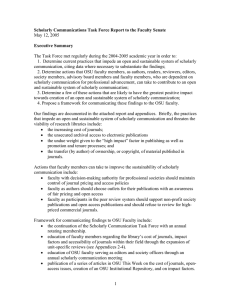Use of Institutional Repositories to Combat the High Cost of... This is the final article in a series on practices...
advertisement
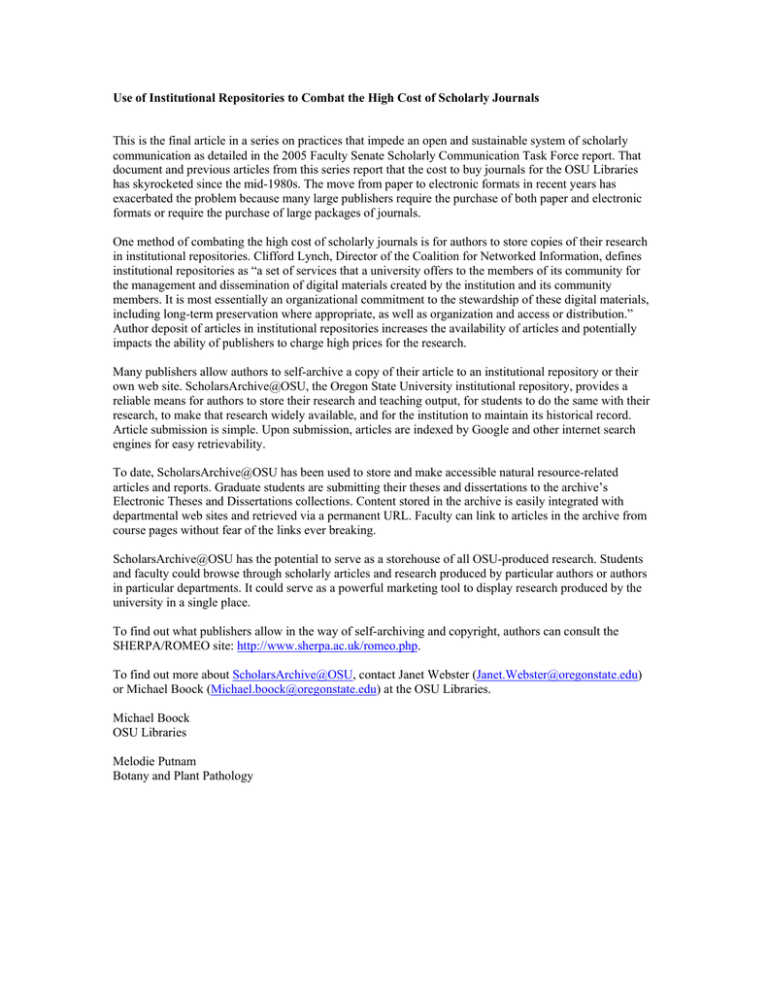
Use of Institutional Repositories to Combat the High Cost of Scholarly Journals This is the final article in a series on practices that impede an open and sustainable system of scholarly communication as detailed in the 2005 Faculty Senate Scholarly Communication Task Force report. That document and previous articles from this series report that the cost to buy journals for the OSU Libraries has skyrocketed since the mid-1980s. The move from paper to electronic formats in recent years has exacerbated the problem because many large publishers require the purchase of both paper and electronic formats or require the purchase of large packages of journals. One method of combating the high cost of scholarly journals is for authors to store copies of their research in institutional repositories. Clifford Lynch, Director of the Coalition for Networked Information, defines institutional repositories as “a set of services that a university offers to the members of its community for the management and dissemination of digital materials created by the institution and its community members. It is most essentially an organizational commitment to the stewardship of these digital materials, including long-term preservation where appropriate, as well as organization and access or distribution.” Author deposit of articles in institutional repositories increases the availability of articles and potentially impacts the ability of publishers to charge high prices for the research. Many publishers allow authors to self-archive a copy of their article to an institutional repository or their own web site. ScholarsArchive@OSU, the Oregon State University institutional repository, provides a reliable means for authors to store their research and teaching output, for students to do the same with their research, to make that research widely available, and for the institution to maintain its historical record. Article submission is simple. Upon submission, articles are indexed by Google and other internet search engines for easy retrievability. To date, ScholarsArchive@OSU has been used to store and make accessible natural resource-related articles and reports. Graduate students are submitting their theses and dissertations to the archive’s Electronic Theses and Dissertations collections. Content stored in the archive is easily integrated with departmental web sites and retrieved via a permanent URL. Faculty can link to articles in the archive from course pages without fear of the links ever breaking. ScholarsArchive@OSU has the potential to serve as a storehouse of all OSU-produced research. Students and faculty could browse through scholarly articles and research produced by particular authors or authors in particular departments. It could serve as a powerful marketing tool to display research produced by the university in a single place. To find out what publishers allow in the way of self-archiving and copyright, authors can consult the SHERPA/ROMEO site: http://www.sherpa.ac.uk/romeo.php. To find out more about ScholarsArchive@OSU, contact Janet Webster (Janet.Webster@oregonstate.edu) or Michael Boock (Michael.boock@oregonstate.edu) at the OSU Libraries. Michael Boock OSU Libraries Melodie Putnam Botany and Plant Pathology
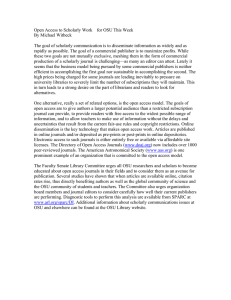

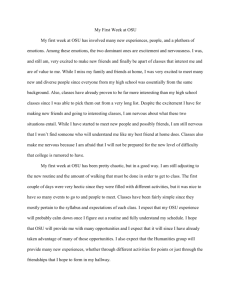
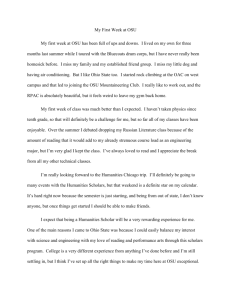
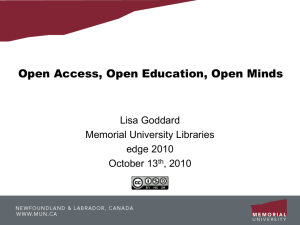
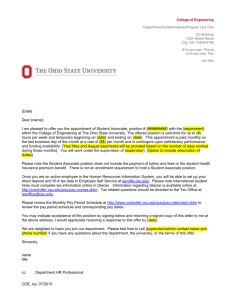
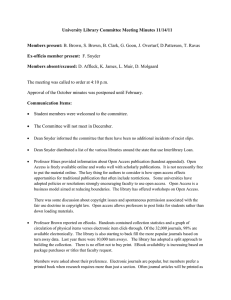
![1 [Slide 1] Good morning, my name is Michaela Willi Hooper, and I’m the new scholarly communication](http://s2.studylib.net/store/data/011105166_1-33816014265017d88d178255572ac67a-300x300.png)
